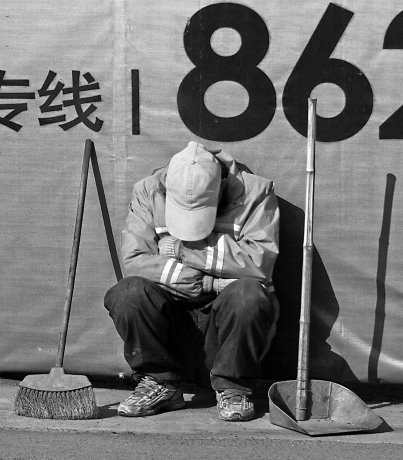A Vancouver corporate training consultant says watching flat screen televisions, computer screens, smart phones and other electronic devices that emit blue light can impair our ability to get a good night’s sleep.
"They interfere with the natural release of melatonin, a hormone that controls sleep," said Jo-Ann Panneton, managing director of New Strategies Inc.
Fatigue is the feeling of extreme tiredness or exhaustion. When we work too hard for too long, without sufficient recovery time, we become fatigued.
Sleeplessness and fatigue mean trouble on the construction job site. In addition to accidents, they can lead to lower productivity, errors and omissions, increased risk of becoming distracted, forgetfulness and greater risk-taking behavior.
"We’re often not aware of how impaired we are when we’re fatigued," she said.
"Over time a sleep debt will accumulate and that can be very dangerous. Some studies say worker fatigue is getting worse."
Panneton says that, in addition to nutrition and exercise, sleep is one of the three pillars of good health.
"Unfortunately, many people don’t value sleep," she said. "They’ll give up sleep before they give up other things."
Four or more nights of getting less than seven hours of sleep per night can be the equivalent of losing one whole night of sleep.
A single sleepless night can affect how a person functions for up to two weeks.
According to a 2016 study by the Canadian Men’s Health Foundation CMHF), one-third of Canadian men are getting only four to six hours of sleep at night.
The CMHF says reduced sleep time might explain why nearly half of Canadian men said they often wake up feeling tired or not refreshed in the morning.
According to the foundation, getting at least seven hours of sleep at night speeds up a person’s metabolism and reduces the chances of having a heart attack, prostate cancer or developing Type 2 diabetes.
Panneton says there are a number of simple ways to improve your chances of getting a good night’s sleep.
"Turn off your computer screen or smart phone at least 90 minutes before going to bed," she said. "No coffee, sugar or alcohol late in the evening. And engage in activities that don’t involve a lot of thinking in place of activities that require a lot of mental heavy lifting."
Fatigue on the construction job site is just as serious a problem as alcohol and drugs, says Edmonton psychologist Don Melnychuk.
"We have to realize that in the same way we look at drug and alcohol impairment, fatigue is just as severe," he said. "When we say fit for duty, we have to put in there alcohol-free, drug-free, fatigue-free."
Melnychuk, who is director of Nadon Consulting Inc., says being awake for 17 consecutive hours, including time at work, is the equivalent of drinking three or four beers in an hour. Drinking that amount of alcohol will lead to a blood alcohol concentration of 0.05 percent.
A small increase in sleeplessness can have a large effect on fatigue.
"Being awake for 20 hours is the equivalent of a blood alcohol concentration of 0.10 percent, or five to six beers in one hour," Melnychuk said.
Fatigue is also a function of our body’s circadian rhythm, or internal clock.
"Accidents go up by four to six per cent at two in the afternoon and four in the morning, when natural dips in our energy occur," he said.
Melnychuk says construction workers need to be aware that a sleep debt can accumulate.
"Let’s say you need eight hours of sleep to feel rested the next day, but you’ve only been getting five hours a night," he said. "That means that in one work week, all those missed hours add up to 15 hours of recovery time your body hasn’t gotten."
The further a person is from getting the right number of hours of sleep he or she needs, the harder that person’s brain works to force him or her to go to sleep.
"Over time, that sleep debt can be just as detrimental and just as dangerous as staying awake for 18 or 20 hours all at once," Melnychuk said.

A police man and a worker are sleeping/resting outside during their shift at a Nanjing, China work site. A Vancouver corporate training consultant says workers are not often aware how impaired they are by fatigue, which could lead to dangerous situations.
Photo: Stougard/Wikimedia Commons"










Recent Comments
comments for this post are closed